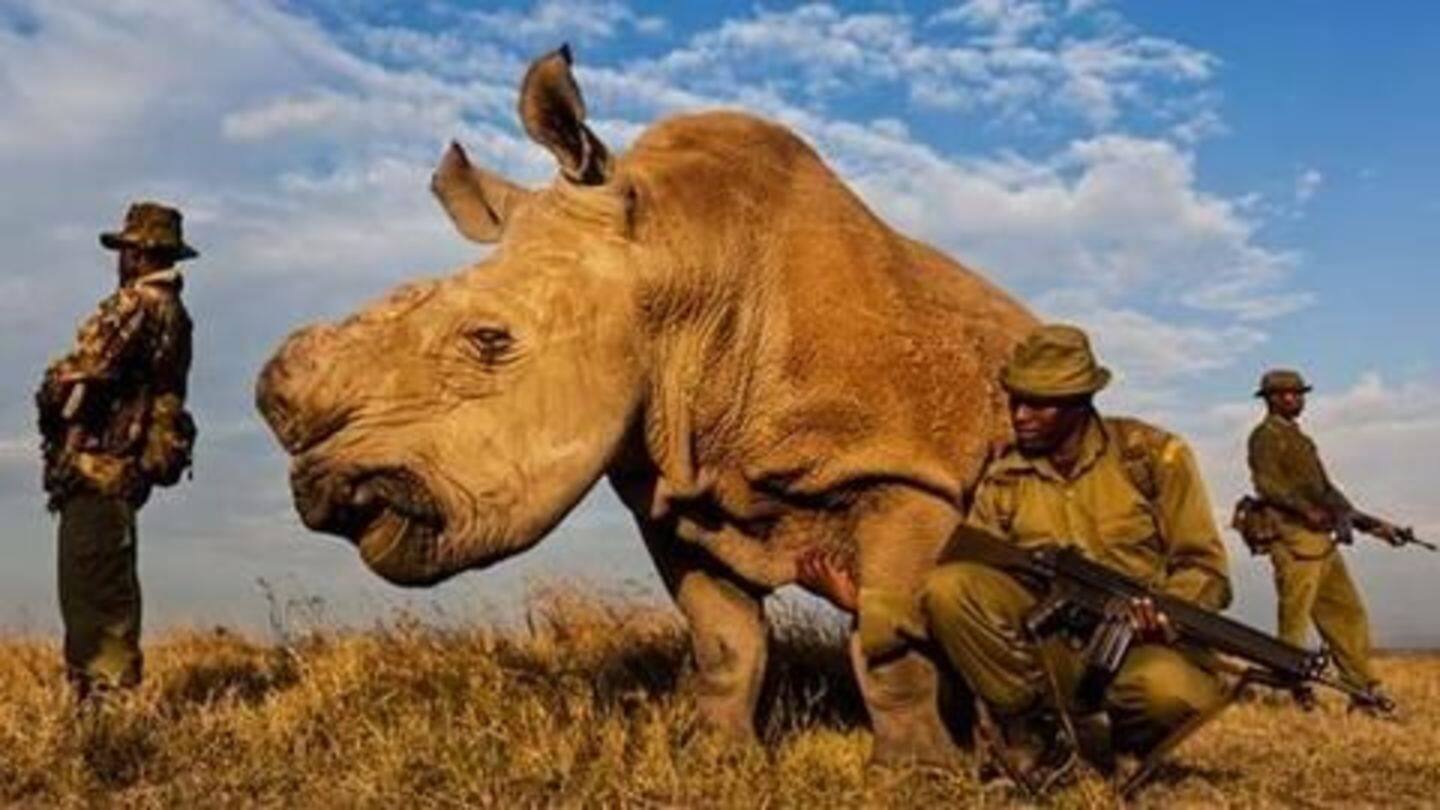
World's last northern male rhino joins Tinder to find mates
What's the story
The world's last male northern white rhino has now joined Tinder in an attempt to find breeding options for the survival of the species. Through the crowdfunding project called "The Most Eligible Bachelor in the World", Ol Pejeta Conservancy hopes to raise money for a $9mn fertility treatment for Sudan, the rhino, who lives at the conservancy.
Tinder
Tinder joins in to help Sudan
The crowdfunding campaign is a joint effort by Ol Pejeta and Tinder. "We partnered with Ol Pejeta conservancy to give the most eligible bachelor in the world a chance to meet his match," said Matt David, head of communications at Tinder. David added his profile will be seen in 190 countries, in 40 languages.
Information
"I'm one of a kind": Sudan on Tinder
"I don't mean to be too forward, but the fate of the species literally depends on me. I perform well under pressure. I like to eat grass and chill in the mud. 6-ft tall and 5,000 pounds, if it matters," Sudan's Tinder profile says.
Security
Sudan's security: 24-hour armed guards, radio transmitters, horns removed
43-year-old Sudan lives in Kenya under 24/7 armed protection with Najin and Fatu, the last two females of their subspecies. He has been fitted with radio transmitters; his horn has also been removed as precaution. Despite several attempts, Sudan has failed to mate naturally; he, Najin and Fatu have several issues, including old age.
Research
Humankind has similar effect on thousands of species: Ol Pejeta
"The plight that currently faces northern white rhinos is a signal to the impact that humankind is having on many other species across the planet," said Richard Vigne, CEO of Ol Pejeta Conservancy. Researchers are currently using Sudan's stored sperm to test IVF on female southern white rhinos; it aims to make a herd of 10 after using IVF for five years.
Data
Population of northern white rhinos has dropped alarmingly
In 1960, there were over 2,000 northern white rhinos, says the World Wildlife Fund for Nature. With constant poaching, however, their numbers alarmingly fell to a mere 15 in just 24 years. They are frequently targeted for their horns, which fetch upto $75,000 per kg.